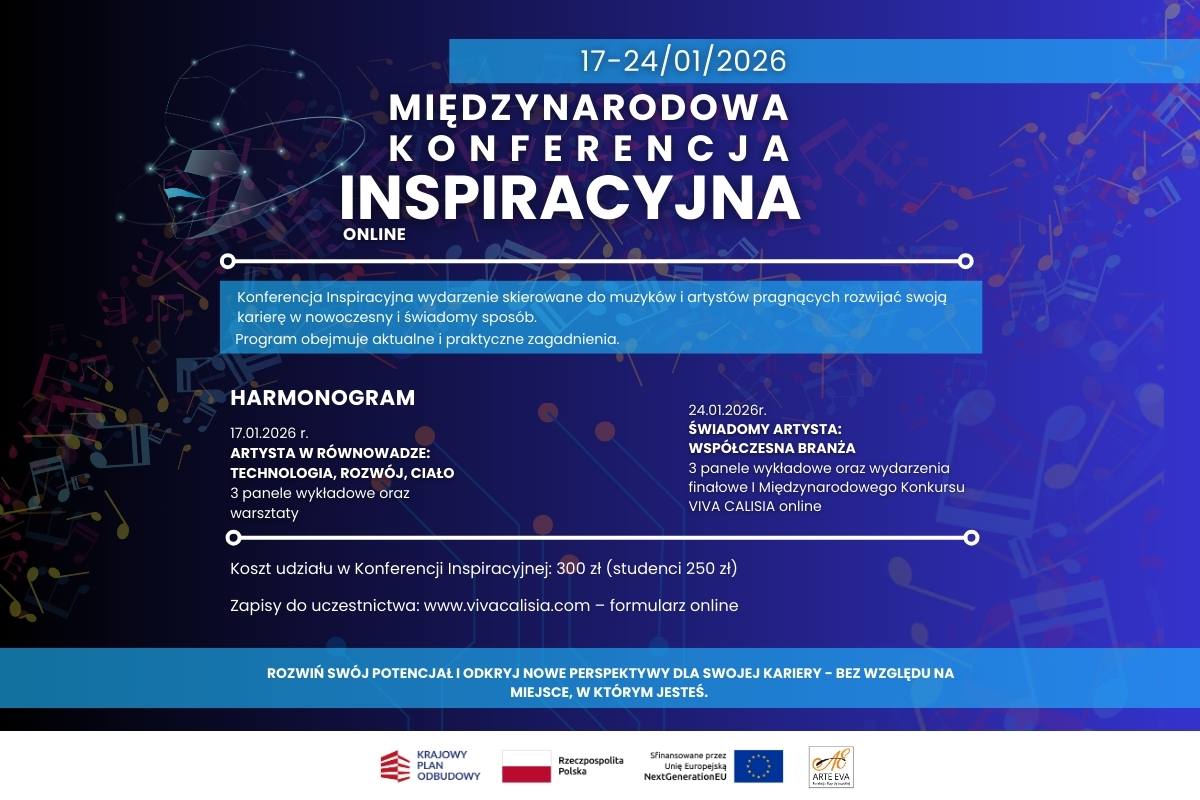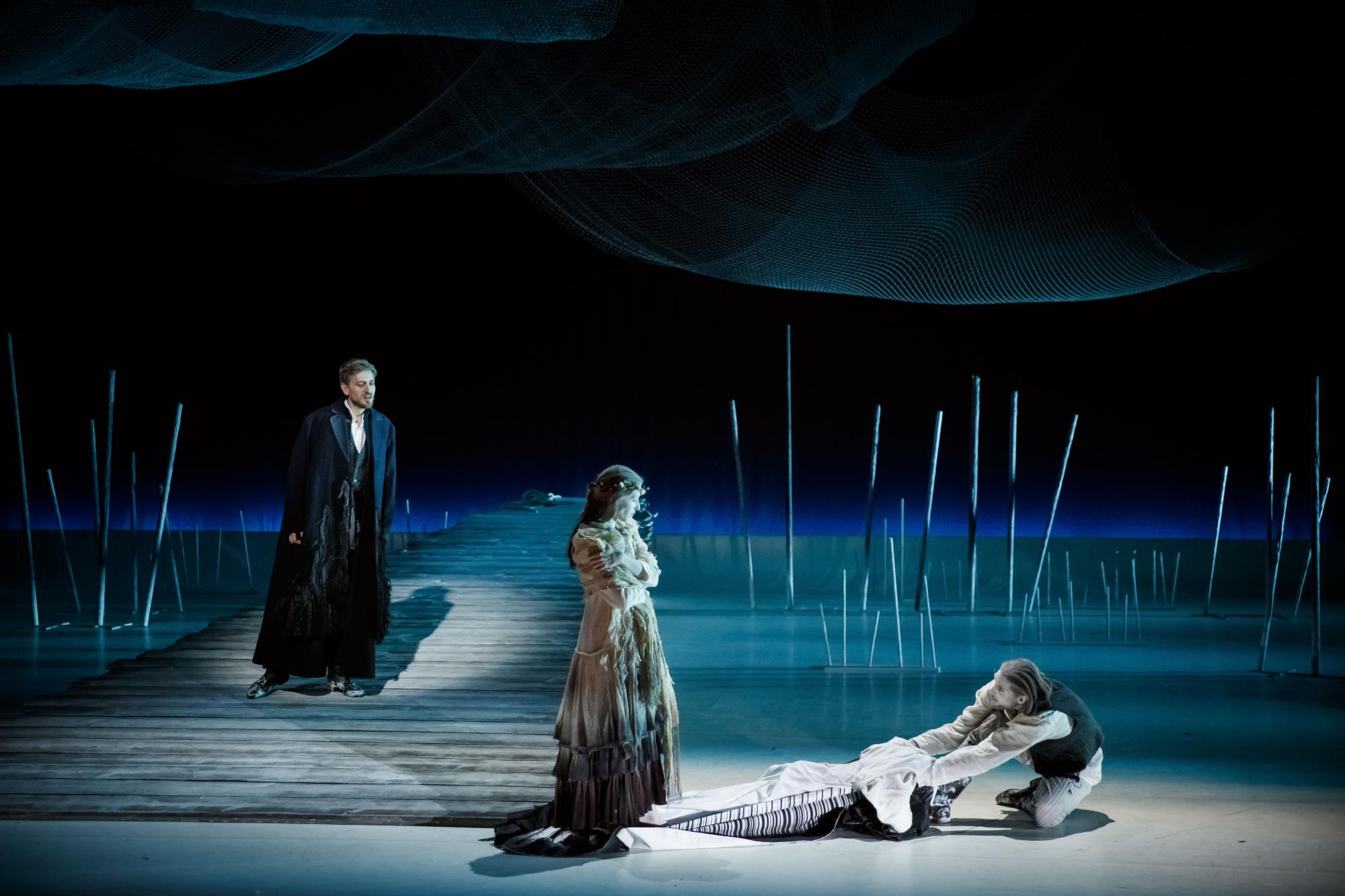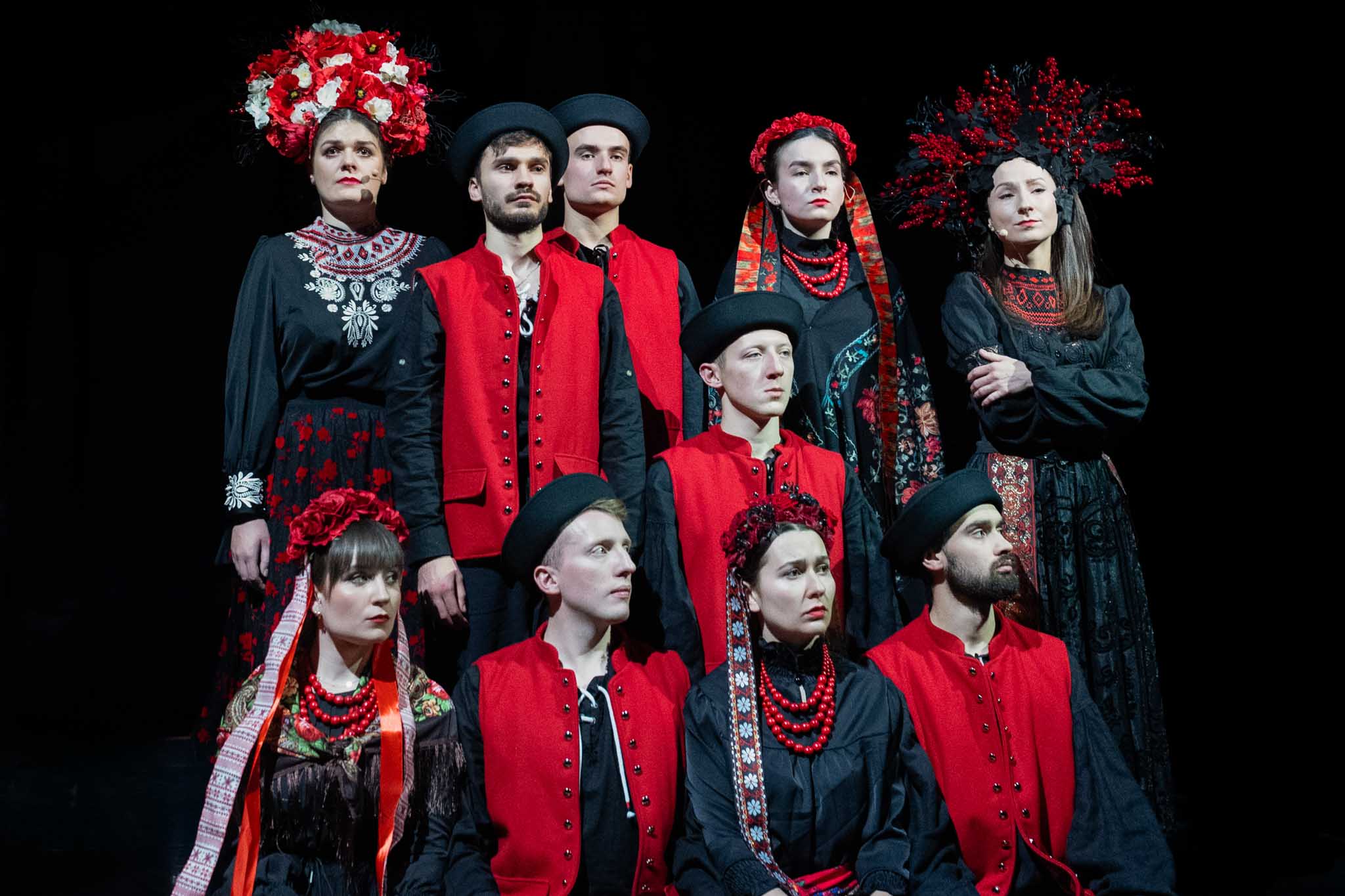 “Hołos” and “Wòlô Bòskô” – when language and region take center stage in opera
“Hołos” and “Wòlô Bòskô” – when language and region take center stage in opera
Although opera grew out of the Italian tradition of the 17th century, it has always drawn inspiration from local cultures and customs. As early as the Baroque period, librettos employed national themes, and in the 19th century an entire movement emerged – from Moniuszko in Poland, through Smetana and Janáček in the Czech tradition, to Mussorgsky in Russia. Today, despite globalization, opera continues to seek its own regional identity and new forms of expression.
This approach is exemplified by “Wòlô Bòskô,” a staged song cycle for baritone and piano by Łukasz Godyla. It was first performed in Kashubian in December 2024 at the Polish National Opera in Warsaw. Interwoven with local beliefs and folklore, the story tells of two lovers, Hanuszka and Jasiek, who fall in love after a chance encounter by a stream. Although the girl’s parents seem to accept their relationship, they delay the wedding. When Jasiek learns that Hanuszka will marry another, she explains it as “God’s will” (“Wòlô Bòskô”). Overcome with despair, he throws himself into the river. The selection of songs for the performance was made by baritone Damian Wilma (Jasiek), a native of Kashubia. On stage he is partnered by Danuta Stenka as both the mother and the narrator. Stenka, born in Kashubia (Kartuzy County), is one of the most recognized figures associated with the region. “Wòlô Bòskô” has already been seen not only by audiences at the Polish National Opera, but also by those who attended the Baltic Opera Festival in Gdańsk this summer. In addition, the performance is available on OperaVision until October 17.
Another example is “Hołos” – the first opera created in the Lemko language. Composed by the young artist Daria Kuziak, the show premiered on November 24, 2024 at the National Forum of Music in Wrocław. The work is rooted in the rich yet tragic history of the Lemkos – an ethnic minority who once inhabited the Low Beskids, parts of the Sądecki Beskid and the Bieszczady Mountains. For centuries they had preserved their own language, customs, and music. In 1947, the community was brutally dispersed as a result of Operation Vistula, when thousands of families were resettled to the Recovered Territories.
The opera has an intimate character, bringing together elements of folk, contemporary, and electronic music. More than 60 artists took part in the production: the Leopoldinum Orchestra conducted by Jakub Przybycien, soloists Justyna Bluj and Aleksandra Malisz, a traditional Lemko band, and dancers from the ROZBARK Theatre in Bytom. The performance creates a multilayered space where the past intertwines with modernity.
“Hołos” tells the story of two sisters, Marysia and Hancia, whose lives were separated by fate. Despite the distance, longing and memory lead to their symbolic union for eternity. The sisters’ story reflects the fate of the Lemko people: uprooted and scattered, yet holding fast to their community and cultural identity. The performance is enhanced by recordings of Orthodox liturgy and excerpts from letters Lemkos sent to relatives in the USA during Operation Vistula. “Hołos” will soon be staged in Kraków (September 7), Warsaw (November 22), and Wrocław (February 1, 2026).
“Wòlô Bòskô” and “Hołos” demonstrate that contemporary opera can serve as a platform for the voices of ethnic minorities to resonate with full force. Here, language is not merely a tool of communication – it becomes a vessel of history and an authentic voice of the region. Language allows the performance to convey experiences and emotions often absent from dominant cultural narratives. In the age of globalization, these artistic decisions acquire particular importance, restoring visibility and voice to local communities.
Kto? Co? Gdzie? Kiedy?
„Hołos” Daria Kurzak
September 7, 2025 / Kraków Opera
November 22, 2025 / Museum of Polish History
February 1, 2026 / Wrocław
„Wòlô Bòskô” Łukasz Godyla
September 13, 2025 / Baltic Opera






